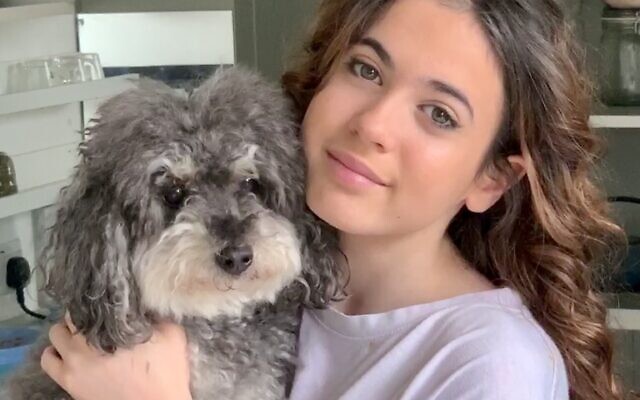What really happened to Mia Janin? Her father shares the family’s unspeakable tragedy
Mariano Janin will be alone again on Yom Kippur. In four months he lost the two most important in his life. Some think they know his story, but he wants them to know the truth
Brigit Grant is the Jewish News Supplements Editor
Mia Janin was a cheerleader. She also went to Sylvia Young Theatre School at weekends and with permission to Camden with friends. And she loved music. All kinds of music, because she grew up to the sounds of opera, jazz and bossa nova that her South American parents enjoyed.
She had her own favourites and memorably danced around the living room to Kate Bush’s Wuthering Heights. An avid reader, Mia was captivated by Emily Bronte’s novel which inspired the song and she saw two film adaptations.
“She preferred the one made in 1939,” says her father, Mariano and places Mia’s copy of Wuthering Heights on the table. He keeps the book on a shelf by the window. A convenient place should his daughter need it in a hurry. But that doesn’t happen anymore.
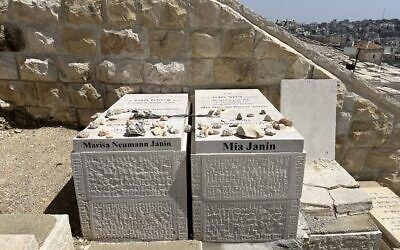
Mia Janin, aged 15, took her own life on Friday 12 March 2021 because she was bullied. In person and online. Her absence fills the house. Sorrow reverberates in every space. Where she once stood, cuddled her beloved toy poodle, Lola or mused about the life she might lead. “She was curious about medicine, but I think, probably, she will study architecture.”
Mariano slips unconsciously into the present tense as he talks about Mia and it’s brutal. The hopes and dreams parents have for their children were stolen from him. Forever. Mariano could have spent the years ahead reminiscing about his only child with her mother, Marisa. The husband and wife went to the same school and university in Buenos Aires, worked side by side and took cultural trips to Europe with an ever-curious Mia.
Those are the memories Mariano clings to, but not Marisa, as she died four months after her daughter. Diagnosed suddenly with an aneurysm, doctors attempting to treat her then discovered she had acute myeloid leukaemia which complicated treatment and left her with no options. Nothing could be done for Marisa. Mariano attempts to explain the medical issues, but ultimately believes the stress of trying to find out what happened to Mia is the real reason he lost his wife.
He battles with answers to that question every day, surrounded by files Marisa collated, but there have been no answers, even at the continuing inquests. But Mariano, 58, didn’t agree to speak to Life Magazine to simply reiterate the details of his daughter’s final decision. He knows the community was shocked and that he is now recognised by people whose names he doesn’t know. They may have seen him on TV as there is lots of media interest and he is working with the NSPCC with other bereaved parents fighting for government changes in the way social media operates and grants (or doesn’t grant) parental access.
Mariano is convinced it will happen, and when it does, he will feel differently. But not about the way his family were treated by the Jewish community. “I’m not talking about all the UK or even all of London, but there are people in north-west London who are cliquey, self-entitled and decide who their children should socialise with and if your postcode fits. This was my family’s experience when we arrived in London, and it continued. That’s why we preferred the acceptance of the Chabad congregation. For them it doesn’t matter where you come from, you’re a Jew.”
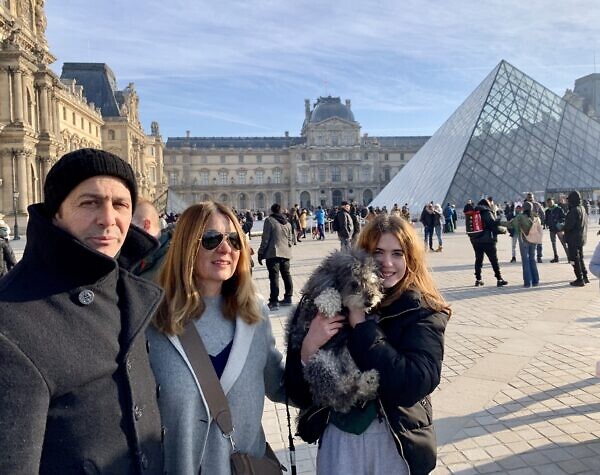
Mariano is also still deeply troubled by the lack of support from those who retreated and stuck together and by Mia’s school. “No one phoned me from the school. Not one call. No one was forth coming about what happened to my daughter. Just silence.”
Mariano will never be silenced. “I have nothing to lose,” he says. “No one took accountability for what happened to Mia and nothing has changed. The same governors were still at the school. It had happened before. If bullies get impunity, they don’t learn any lessons.”
Mariano’s muted anger is etched across his tired face. He has been diagnosed with Giant cell arteritis, a serious vascular illness he has under control, but it’s exacerbated by stress. The kind of stress borne out of being denied justice.
Without change Mariano thinks, there will be more cases like Mia’s in the future. “Something is missing – the transmission of basic Jewish values. The school is government funded but governed by a religious body. They can manage marriages and burials, but don’t know about educating children in today’s world. Children’s lives are so different to when we were young. They are bullied and cyberbullied and they are much less resilient after spending two years being socially-isolated through the pandemic.”
Mariano’s muted anger is etched across his tired face. He has been diagnosed with Giant cell arteritis, a serious vascular illness he has under control, but it’s exacerbated by stress. The kind of stress borne out of being denied justice.
Marisa Janin never went upstairs again after Mia died and her room is how she left it. Her father is not ready to face what needs to be done.
“My wife used to say that if her father (Alexander Neumann) could see how his granddaughter was bullied in a Jewish school, he would turn in his grave. He survived four concentration camps and was the sole survivor of a huge Hungarian family from the town of Pápa. He never talked of his experiences to Marisa, whose cousin is Chief Rabbi in Russia, but she organised the testimony he gave to the Steven Spielberg Foundation and his German reparation payments.”
Given the middle name Vera after her father’s youngest sister who died in the Holocaust, Marisa then honoured Roshi, the brother he lost, by giving Mia the Hebrew name, Rachel. Mariano’s Austrian grandparents sought safety in Argentina, but they and his parents are gone now. He has a sister in Mexico and another in Jerusalem as his support network; cousins around the globe and London friends who refused to leave him alone when Marisa died.
“I’m glad my parents didn’t see what happened to me. When we lose our parents it’s always painful, but it’s the natural order. We miss them, but accept it, moving forward as an orphan. When I lost Marisa I became a widower. But interestingly there is no word in English, Spanish, Hebrew or possibly any language to define someone who loses a child. It’s just ‘tragedy’”.
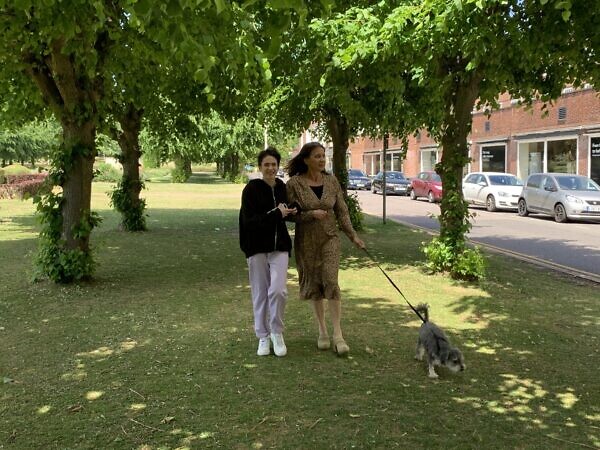
Solace eludes Mariano, who doesn’t believe in anything, except God. But when a friend gave him a copy of Dr Edith Eger’s The Choice: Embrace the Impossible which is described as ‘the key to freedom for those imprisoned within their own minds’ he read it and liked it. He was also intrigued by the eminent psychologist author because she is an Auschwitz survivor, now aged 94, who worked with veterans and victims of physical and mental trauma. “The friend who gave me her book, then set up a zoom with her for me. It was meant to be for 20 minutes, but we spoke for two hours. She was amazing and told me that when you survive you are alone and see things in a different way because your perspective changes. You realise that life is a finite thing.”
Mariano had another zoom with the author who sent him a copy of her book, The Gift: A Survivor’s Journey to Freedom and included a copy of her list which determines the difference between survivors and victims. That he is able to converse at all and occasionally smile suggests Mariano is a survivor, but he is a long way from giving up a victim’s blame.
How can he, when among his many happy family photos is the distressing image of two graves on Har ha-Zetim (The Mount of Olives). Marisa’s name is on one and the grave beside her is marked Mia.
“Marisa didn’t want her to be buried in Bushey or Edgwarebury cemeteries,” says Mariano “She wanted to take Mia out of this country to Israel. I thought it would be impossible. Everybody said it would be impossible, but we found space for her in the Chabad section of Har ha-Zetim. I have learned since that to get a place there is very hard. And one day that’s where…”
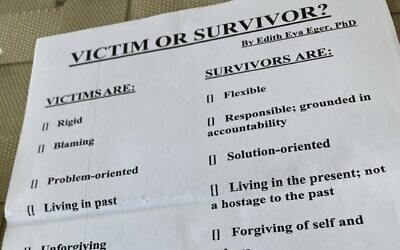
His voice trails away and he gets up. He is crying. “Excuse me,” he apologises, needlessly, because I am crying too. “I don’t know if I will ever get any kind of closure. Friends say I should meet another woman, start another family. This will not give me closure. I will not replace my lovely wife and daughter with another….. I don’t need to fall in love again because I knew real love.”
Mariano is not religious, “But I believe in us – the Jews and the codes and values of Judaism which allows us to survive. But also think when you pray, you need to understand them and pray from your heart. You also need to teach your kids not to be respectful. There are actually 613 mitzvot to follow.”
I met with Mariano a week after Marisa’s yarzeit and he will spend another Rosh Hashannah and Yom Kippur without her or his beautiful daughter. Only Lola, who never leaves his side will be there.
“Last Yom Kippur I spent the whole day at home. I didn’t want to go to shul. I fast on Yom Kippur, but I felt I didn’t need to go. In this house I have yizkor every day.”
Jewish Bereavement Counselling Service: 020 8951 3881 – jbcs.org.uk

Thank you for helping to make Jewish News the leading source of news and opinion for the UK Jewish community. Today we're asking for your invaluable help to continue putting our community first in everything we do.
For as little as £5 a month you can help sustain the vital work we do in celebrating and standing up for Jewish life in Britain.
Jewish News holds our community together and keeps us connected. Like a synagogue, it’s where people turn to feel part of something bigger. It also proudly shows the rest of Britain the vibrancy and rich culture of modern Jewish life.
You can make a quick and easy one-off or monthly contribution of £5, £10, £20 or any other sum you’re comfortable with.
100% of your donation will help us continue celebrating our community, in all its dynamic diversity...
Engaging
Being a community platform means so much more than producing a newspaper and website. One of our proudest roles is media partnering with our invaluable charities to amplify the outstanding work they do to help us all.
Celebrating
There’s no shortage of oys in the world but Jewish News takes every opportunity to celebrate the joys too, through projects like Night of Heroes, 40 Under 40 and other compelling countdowns that make the community kvell with pride.
Pioneering
In the first collaboration between media outlets from different faiths, Jewish News worked with British Muslim TV and Church Times to produce a list of young activists leading the way on interfaith understanding.
Campaigning
Royal Mail issued a stamp honouring Holocaust hero Sir Nicholas Winton after a Jewish News campaign attracted more than 100,000 backers. Jewish Newsalso produces special editions of the paper highlighting pressing issues including mental health and Holocaust remembrance.
Easy access
In an age when news is readily accessible, Jewish News provides high-quality content free online and offline, removing any financial barriers to connecting people.
Voice of our community to wider society
The Jewish News team regularly appears on TV, radio and on the pages of the national press to comment on stories about the Jewish community. Easy access to the paper on the streets of London also means Jewish News provides an invaluable window into the community for the country at large.
We hope you agree all this is worth preserving.


